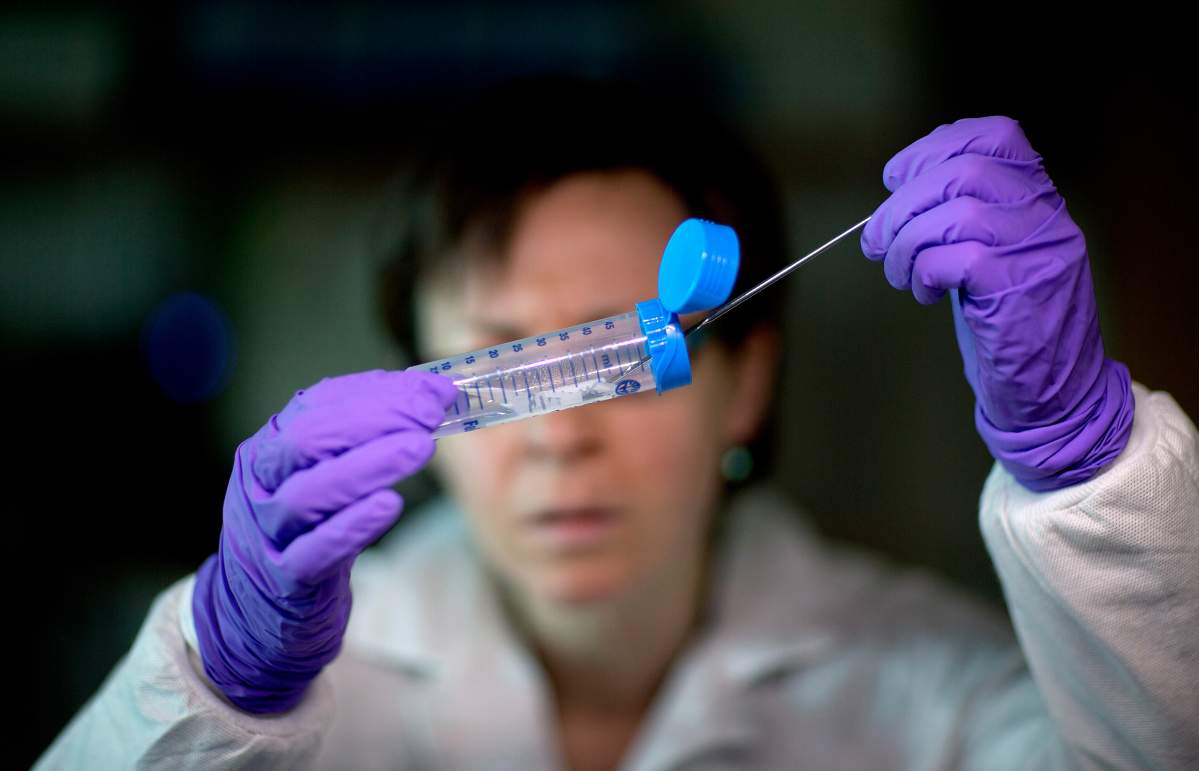Before the discovery of penicillin almost a hundred years ago, doctors relied on other treatments to fight deadly infections.

Now, after almost a century of overusing antibiotics, many infections are resistant to drugs, and doctors are again turning to treatments of the past to help patients who have no other recourse.
One Winnipeg-based company hopes its made-in-Canada solution will be able to save future lives.
Steven Theriault, CEO of local Cytophage Technologies, told 680 CJOB his company is using something called bacteriophage therapy to fight back against anti-microbial resistance.
He said it uses a unique cocktail of viruses to target and neutralise harmful bacteria in a patient’s body.
“We use antibiotics in our feed, we use it for our animals, and we also use it to treat our patients,” said Theriault.
“Because of all of these usages, our bacteria are actually becoming resistant to these types of antibiotics, which is leaving people at risk, because they don’t have any useful solution to get rid of the bacterial problem.”
Theriault said the resistance is due to over-reliance on – and over-prescription of – antibiotics in our culture.

Get weekly health news
“Generally, when you go to the hospital and say ‘hey, I’m sick’, the doctor would normally prescribe antibiotics without actually testing to see if you have a bacterial or viral infection,” he said.
“Also, when you, as the consumer, take it home, if you don’t take your full cycle, the bacteria will start to get resistant to that antibiotic.”
Bacteria phages, he said, are viruses that are the planet’s most abundant life source. They’re a natural defense mechanism against bacteria, in that they only infect bacteria and don’t hurt human or animal cells.
Theriault said phages were used frequently in the early 1900s – for example to treat dysentery patients during the First World War – with great success, but “sort of disappeared into the sunset” once antibiotics, which were easier to find and culture, plus easier to patent, came to prominence.
His group is arguing that it’s time to turn back the clock and use phage-based medicine once again.
Because you need one bacteria phage to kill off one bacteria, he said, you’d need to collect a lot of them and do a lot of research to get what he calls a “panel of viruses” of bacteria phages that can kill off bacteria.
Cytophage, he said, has found away around that, by developing a system where one phage virus can attack multiple types of bacteria.
So far, it’s being tested in animals, but Theriault said he’s hoping it can clear the red tape to be human-ready soon.
“We needed it about five years ago,” he said.
WATCH: University of Manitoba student spending years and thousands of dollars in research to find HIV cure









Comments